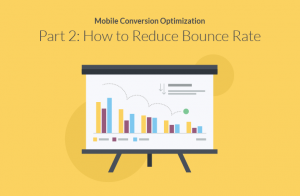Marketing needs to elevate itself from baked-in AI solutions and look at creating custom models based on their own data. Start with brand.
With many marketing organizations using solutions with artificial intelligence baked in, and many now scrambling to test use cases for readily available generative AI, Andrew Frank, VP distinguished analyst at Gartner, steps forward with a modest proposal: Develop a custom AI model for your brand. And the first use case for it? Branding itself.
The custom part of the proposal is a key feature. Marketing must graduate from “embedded, out-of-the-box” solutions, Frank says. He quotes Gartner research that shows that, while 55% of business leaders consider AI for every use case (rising to 71% if AI has been in use for more than four years), marketing comes seventh in the top twelve list of business functions seen by the leaders as benefitting from AI.
Why start with brand. Presenting at the Gartner Marketing Symposium, Frank made the case that brand is actually a “fuzzy, abstract” concept, and pointed correctly to the immense progress made by AI, and notably by generative AI, in handling the fuzzy. Generative AI like Chat GPT, for example, tends to sacrifice precision for broadly relevant and more-or-less accurate output. “It’s easier for them to tell you whether a story is happy or sad than whether it’s true.”
Ideal for brand, Frank says, which is not one precise concept, but a panoply of imagery, color, tone, mood and values.
“You have a brand, you care about that brand and you have been developing assets for that brand,” Frank told us. “That is actually a perfect situation to begin custom modelling.”
Of course, just starting is going to be daunting, but Frank is not calling on brands to start from scratch; “That’s out of the scope of most organizations,” he said. ChatGPT is just one of a number of foundational AI models out there, including offerings from Google and Amazon. The strategy should be to deploy one of these models and then customize it by training it on the brand’s own data. “It becomes a copy of the original model,” Frank explained, “with your own custom additions.”
As well as training data there should be human oversight and feedback, especially to represent brand values.
This doesn’t mean that humans are themselves going to have to feed the model with what it needs to know. “The beauty of these models is, you don’t even have to understand the concepts that it’s extracting. It will do that for you. All you have to do is feed it with a corpus of examples and all of the subtle semantic connections that we consider it really hard to think about, it does that for you.”
Who’s on the team? This project will need input from both marketers and from IT and data scientists and AI experts. At the heart of the team, however, is a role Frank refers to as the Model Owner. The Model Owner will not be a hands-on data or AI expert, but she will be able to interact with the experts and translate between their operational challenges and the needs of the marketers. “It’s not a technical role at all,” Frank said. “It’s more of a supervisory role that articulates and owns the training process. They don’t have to know how the training process works.”
The operational framework for the model envisages generative AI creating paid media, content and social ads, sites, apps, videos and chatbots, but all within the parameters of the brand it has come to understand.
Why we care. Among all the use cases currently being described for AI, this is an ambitious one. It’s easy to see how branding could go off the rails without close human attention. Frank admits that. Also, once one starts introducing an IT team (with time on its hands) and data scientists, one begins to think this is primarily an enterprise project.
Nevertheless, Frank is bold enough to posit that custom training of AI by brands will be mainstream by 2026.
The post It’s time to teach AI about your brand appeared first on MarTech.
MarTech(5)
Report Post







